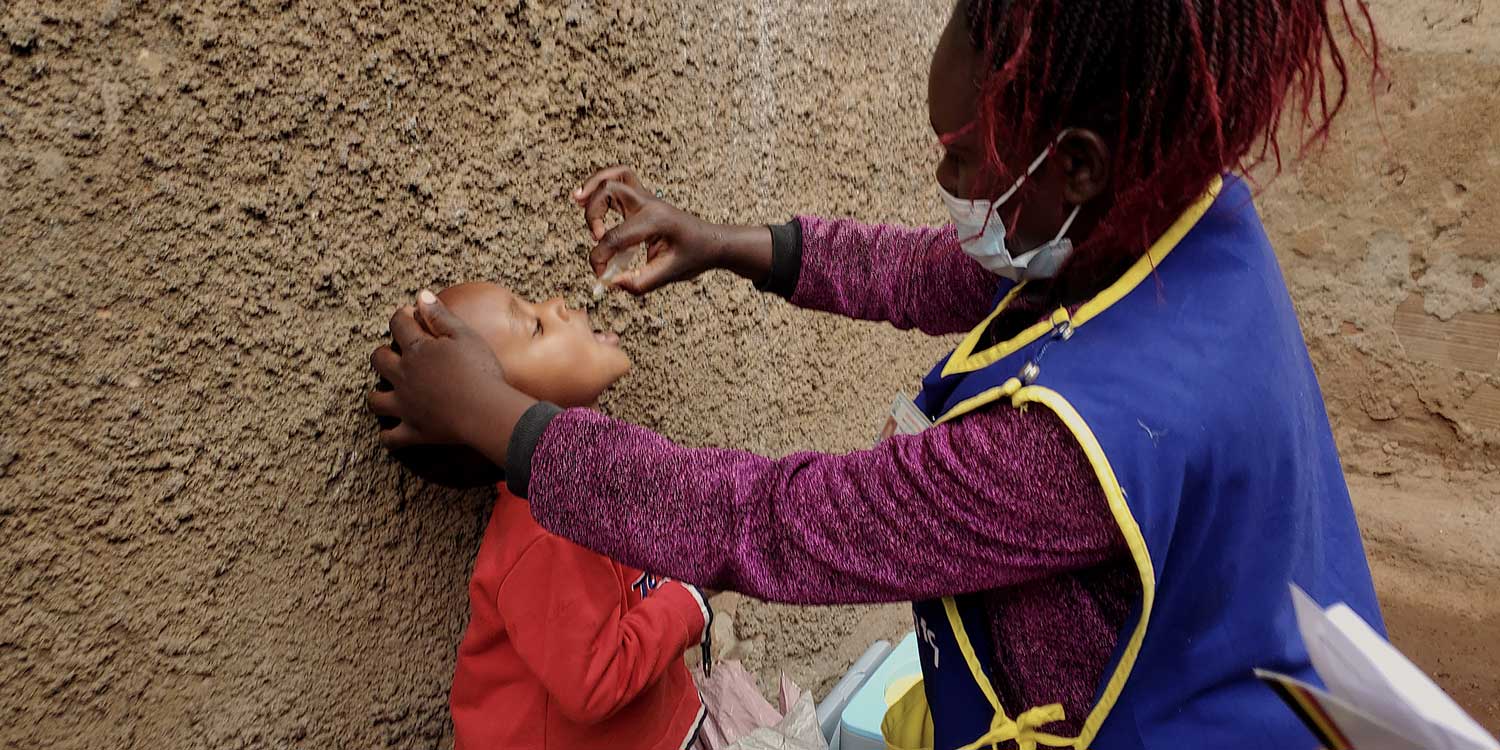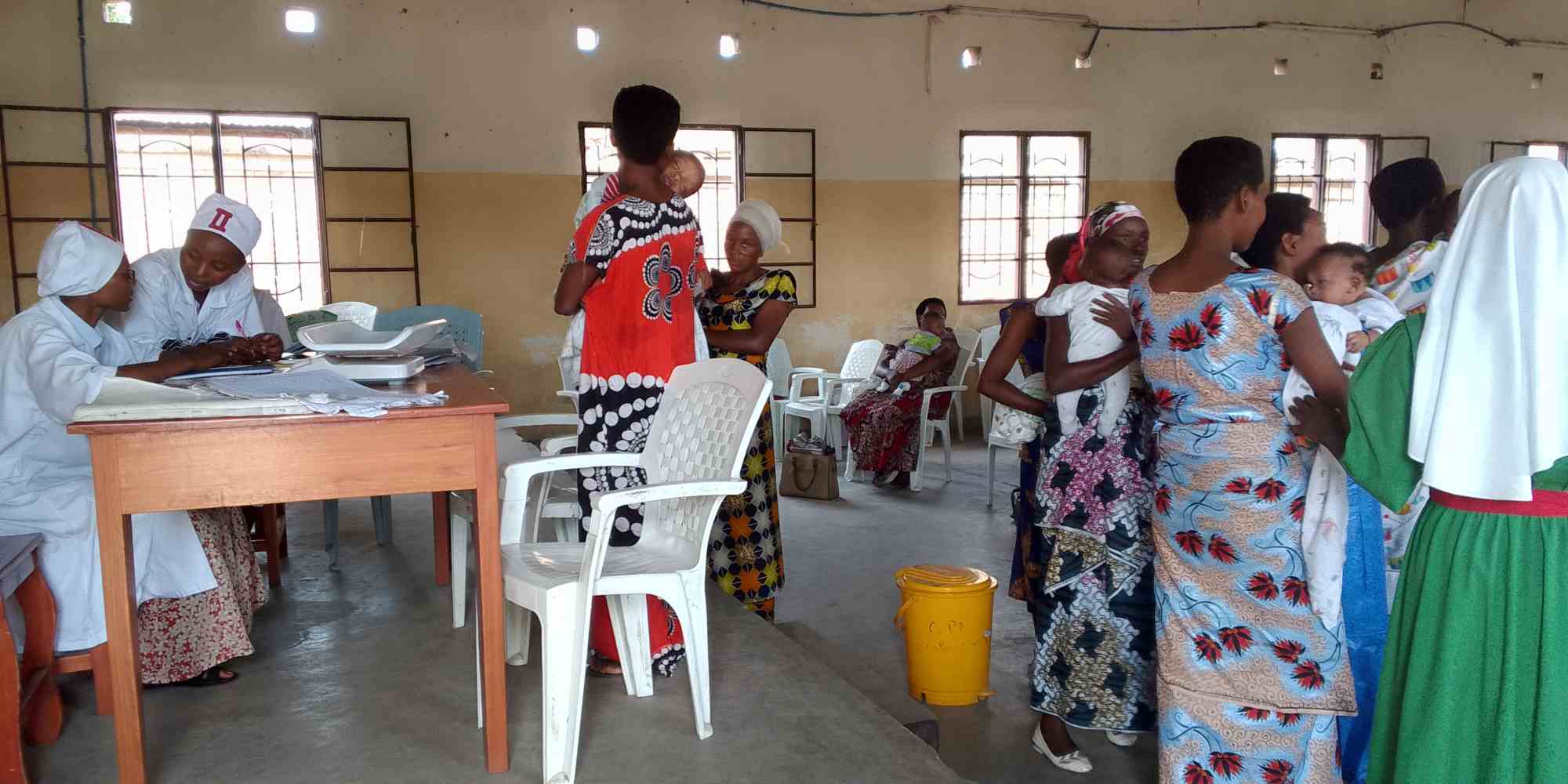After 30 polio-free years, Burundi fights the paralysing virus
An unvaccinated child in Bujumbura Province was the first diagnosed. Since then, 16 cases of acute flaccid paralysis have been found – but vaccines are being deployed.
- 10 May 2023
- 4 min read
- by Diane Ndonse

The Burundian Ministry of Health declared a polio epidemic on March 17 – the first in 30 years – after cases of type 2 poliovirus (cVDPV2) were confirmed in the health districts of Isale and Bujumbura Mairie.
"On March 13, 2023, the Global Polio Laboratory Network confirmed three cases of poliovirus in Burundi. A four-year-old child from the Gatumba zone in the Isale health district in Bujumbura province had not received any dose of vaccination against poliomyelitis, and there are a further two contacts in the same case," said Dr Sylvie Nzeyimana, Minister of Public Health and the Fight Against AIDS, in a press release. Since then, the 16 cases of acute flaccid paralysis have been found.
She added: "The analysis of samples from the collection of wastewater from environmental monitoring services showed the presence of poliovirus in five samples, including three from the sites of Bujumbura Mairie Nord and two from Bujumbura Mairie Centre."
Concerned residents
We went to the Gatumba area in Isale health district, where the virus had been confirmed. Belyse, the mother of the child who contracted polio, lives on Gaharawe Hill. She claims that her child's left arm is paralysed. He had not received any dose of vaccine against this serious disease.
"Because of day-to-day concerns, I did not find the time to go and have my child vaccinated," Belyse explains. She says her child has other health issues, including anaemia. "We sometimes give him blood transfusions," says the young mother. The little boy will work with a physiotherapist to recover as much of his arm's use as possible.
Have you read?
Neighbours are concerned, and fear the spread of the paralysing disease, as the child continues to move around freely. "The health authorities have come to take samples, but we have not yet had the results," said Ornella Dusabe, mother of two. "We respect the vaccination programmes for our children, but we are afraid of contaminations," explains Anitha Nziyimana, another mother, who, like many other parents, is calling for drastic measures to prevent other children from catching the virus.
Challenging epidemic management in border areas
Enock Ngendakumana, the general secretary of the Group of Community Health Agents (GASC) in Gatumba, says that awareness-raising operations were strengthened following the declaration of this outbreak. He explains that the COVID-19 pandemic has not had any negative impacts in the fight against polio, as vaccination has continued normally. The fight against COVID-19 has instead made it possible to strengthen the fight against diseases, in particular those related to the lack of hygiene.
Ngendakumana admits that this area is at risk: it is located on the border with the Democratic Republic of the Congo. "Burundians go to DRC to earn a living by working there, and Congolese also come, all without health checks. It's hard to manage," he said.
Hussen Ntahetwa, the chief of the Gatumba area, says that in all the meetings in which he takes part, there is an emphasis on raising awareness of the routine vaccination schedule. Home visits are also organised to explain the best behaviours to adopt.
Upcoming vaccination campaign
The Minister of Health explained that the government and its partners in the Global Polio Eradication Initiative (GPEI) have taken measures. On April 27, Burundi took delivery of 3.8 million doses of nOPV2 vaccine. The Ministry is targeting children between the ages of zero and seven in its responsive campaign.
The key to stopping cVDPV2 outbreaks is to reach all children with safe, effective polio vaccines.
In order to stop the circulation of the virus, there will also be epidemiological and social investigations, an assessment of the risk of the spread of the epidemic and the strengthening of epidemiological surveillance of poliomyelitis.
Circulating vaccine-derived poliovirus type 2 (cVDPV2) is the most common form of poliomyelitis in Africa. More than 400 cases of acute flaccid paralysis were reported from 14 countries in 2022. Vaccine derived poliovirus infection can occur in the very rare cases that the weakened strain of the virus contained in the oral polio vaccine circulates among under-vaccinated populations for long periods of time, gradually changing into a disease-causing virus. The key to stopping cVDPV2 outbreaks is to reach all children with safe, effective polio vaccines.
This article is an updated version of a story which first appeared on the French version of VaccinesWork in April. Read the original here.






